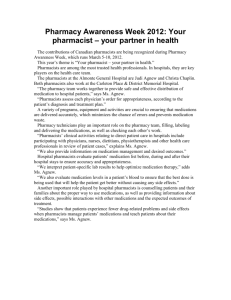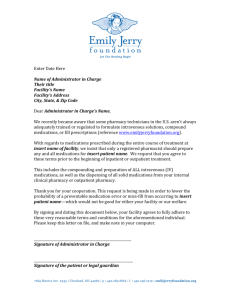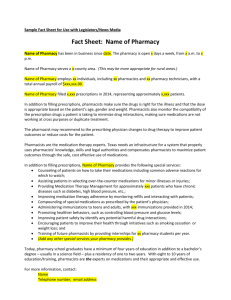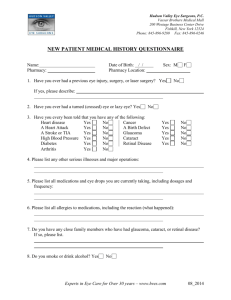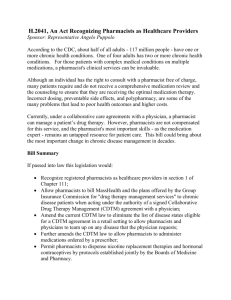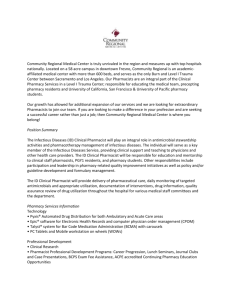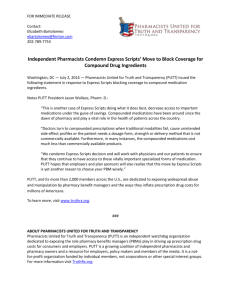Sample Inserts to Use with Patient Prescriptions
advertisement
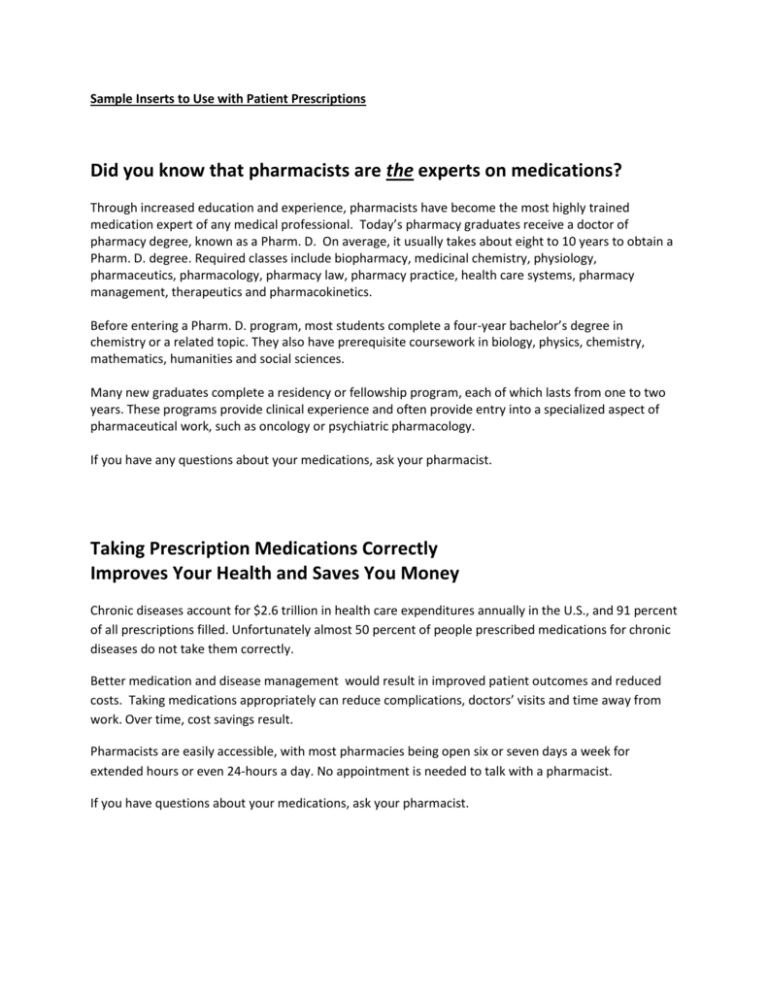
Sample Inserts to Use with Patient Prescriptions Did you know that pharmacists are the experts on medications? Through increased education and experience, pharmacists have become the most highly trained medication expert of any medical professional. Today’s pharmacy graduates receive a doctor of pharmacy degree, known as a Pharm. D. On average, it usually takes about eight to 10 years to obtain a Pharm. D. degree. Required classes include biopharmacy, medicinal chemistry, physiology, pharmaceutics, pharmacology, pharmacy law, pharmacy practice, health care systems, pharmacy management, therapeutics and pharmacokinetics. Before entering a Pharm. D. program, most students complete a four-year bachelor’s degree in chemistry or a related topic. They also have prerequisite coursework in biology, physics, chemistry, mathematics, humanities and social sciences. Many new graduates complete a residency or fellowship program, each of which lasts from one to two years. These programs provide clinical experience and often provide entry into a specialized aspect of pharmaceutical work, such as oncology or psychiatric pharmacology. If you have any questions about your medications, ask your pharmacist. Taking Prescription Medications Correctly Improves Your Health and Saves You Money Chronic diseases account for $2.6 trillion in health care expenditures annually in the U.S., and 91 percent of all prescriptions filled. Unfortunately almost 50 percent of people prescribed medications for chronic diseases do not take them correctly. Better medication and disease management would result in improved patient outcomes and reduced costs. Taking medications appropriately can reduce complications, doctors’ visits and time away from work. Over time, cost savings result. Pharmacists are easily accessible, with most pharmacies being open six or seven days a week for extended hours or even 24-hours a day. No appointment is needed to talk with a pharmacist. If you have questions about your medications, ask your pharmacist. Did You Know that Pharmacists Are Capable Of Much More than Filling Prescriptions? The traditional view of a pharmacist is someone who dispenses medications in somewhat of an assembly line fashion. Today’s pharmacist is so much more. Did you know that: Today’s pharmacists graduate with a doctor of pharmacy degree? Pharmacists usually have earned a bachelor’s degree in a science field, such as chemistry, before entering pharmacy school? Today’s pharmacy graduates complete a one- to two-year residency after completing their pharmacy course work. Pharmacists and pharmacy technicians must pass comprehensive examinations administered by the state before being licensed to practice? In addition to dispensing medications as prescribed by your physician, pharmacists are educated and capable of: Counseling patients on how to take their medications including common adverse reactions for which to watch; Assisting patients in selecting over-the-counter medications for minor illnesses or injuries; Providing Medication Therapy Management for patients who have chronic diseases such as diabetes, high blood pressure, etc.; Improving medication therapy adherence by monitoring refills and interacting with patients; Administering immunizations to teens and adults; Promoting healthier behaviors, such as controlling blood pressure and avoiding drug interactions by informing physicians and patients about over-the-counter drugs or supplements taken; Encouraging patients to improve their health through initiatives such as smoking cessation or weight loss; and Monitoring lab work and other outcomes to evaluate the effectiveness of prescribed medications. If you need help with your medications or managing a chronic disease, please talk with your pharmacist.

